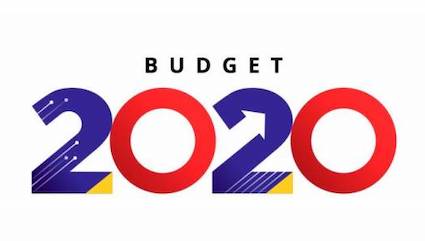
Putrajaya may not have done enough to boost its revenue, and some expenditure decisions could hurt fiscal health in the long run, experts said.
Amir Yusof, CNA
The budget for 2020 unveiled by the Pakatan Harapan (PH) government on Friday (Oct 11) bears many similarities with policies undertaken by the previous government, noted analysts interviewed by CNA.
They added that the budget was a missed opportunity for PH to differentiate itself from the Najib Razak administration.
“The budget is very similar to the ones in previous years, (there’s) really nothing special. They are just modifying the policies but there are no concrete changes from Najib’s administration,” said Universiti Teknologi Malaysia’s Nanthakumar Loganathan.
“It was a missed opportunity. They could have utilised fiscal instruments, by introducing or increasing taxes to increase revenue.”
In a two-and-half-hour-long budget speech, Finance Minister Lim Guan Eng unveiled a smaller budget for next year and revised the fiscal deficit from an initial target of 3 per cent to 3.2 per cent.
Economic growth is expected to be 4.8 per cent next year, slightly higher than this year’s projection of 4.7 per cent.
Revenue is forecast at RM244.53 billion (US$58.4 billion) in 2020, down 7.1 per cent from this year’s projection.
TAX POLICY TWEAKS SUFFICIENT?
During the budget, Mr Lim announced the introduction of a new tax – the Digital Service Tax – which covers streaming services like Netflix and Spotify, digital advertising such as Google and Facebook, as well as digital software and games distribution companies.
Assoc Prof Loganathan highlighted that the revenue derived from this tax would be “too small” and that the government could have “looked closely” at tweaking other taxes like the corporate tax or taxes on liquor.
The minister had also proposed a new band for taxable income in excess of RM2 million to be introduced and taxed at 30 per cent. This is a 2 percentage point increase from the current 28 per cent. The move will affect approximately 2,000 top income earners in the country.
Mr Lau Zheng Zhou, an economics and business expert at the Institute for Democracy and Economic Affairs highlighted that this will have minimal impact on Malaysia’s fiscal consolidation.
“You have to be very careful with this, those who earn more than RM2 million (a year) will have to pay more, but how many of us are earning that amount?” he said.
He added that one positive thing is that the government has started to invest in the digital economy.
“But we are facing the same issues (as the previous government) such as giving handouts … not preparing for new technology and also there is a bit of trying to maintain the rural heartland Malay support.”
“Maintaining the support of the Malay heartland is a political consideration, which is (a move) that is not different from the previous administration,” Mr Lau said.
However, in his speech, Mr Lim highlighted how abolishing the Goods and Services Tax (GST) last year has differentiated the PH administration from the Barisan Nasional government.
Removing the GST was one of PH’s election promises.
Mr Lim added that the decision was vindicated as the government has managed to lower inflation to 0.2 per cent for the first half of 2019, as compared to 1 per cent in 2018 and 3.7 per cent in 2017.
“The numbers prove that GST which was introduced under the previous administration resulted in inflation. By abolishing GST in Jun 2018 and replacing it with the Sales and Services Tax in September 2018, inflation has been reduced to lowest levels since 2007,” he added.
He also emphasised that the government had no plans to re-introduce the GST.
MORE CASH HANDOUTS A WORRYING TREND
Analysts also questioned the effectiveness of the cash handouts that were announced.
For instance, in a bid to reduce Malaysia’s dependence on foreign labour, employers who replace a foreign employee with a local employee would receive an incentive of up to RM250 a month for two years.
Additionally, a Malaysian who replaces a foreign worker will be given salary incentives of between RM350 to RM 500, for the same period.
Mr Lau highlighted that giving such handouts is a worrying trend as it will cause inflationary pressure for wages, but the level of productivity will be the same.
“If the goal of the Government is to stimulate the economy in the short run, cash handouts will work. But what does it mean in the long run? Are you going to keep on increasing? It helps to make ends meet but will not fundamentally resolve the cost of living issue,” he added.
Mr Lau also said that by incentivising Small and Medium Enterprises (SMEs) to hire locals, it could actually hurt them.
“If you increase the cost of business by hiring these (local) workers, the government is absorbing the costs. But what if the productivity doesn’t increase? This ends up with higher cost but the same productivity, which is going to kill SMEs in the long run,” he added.



No comments:
Post a Comment
Note: Only a member of this blog may post a comment.